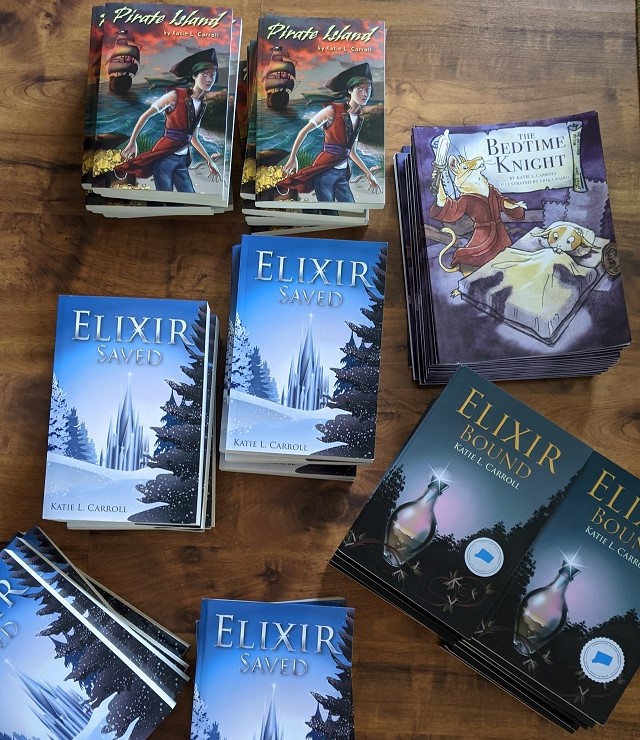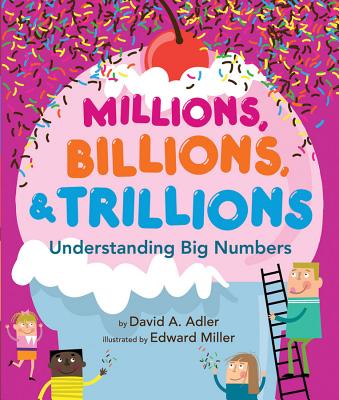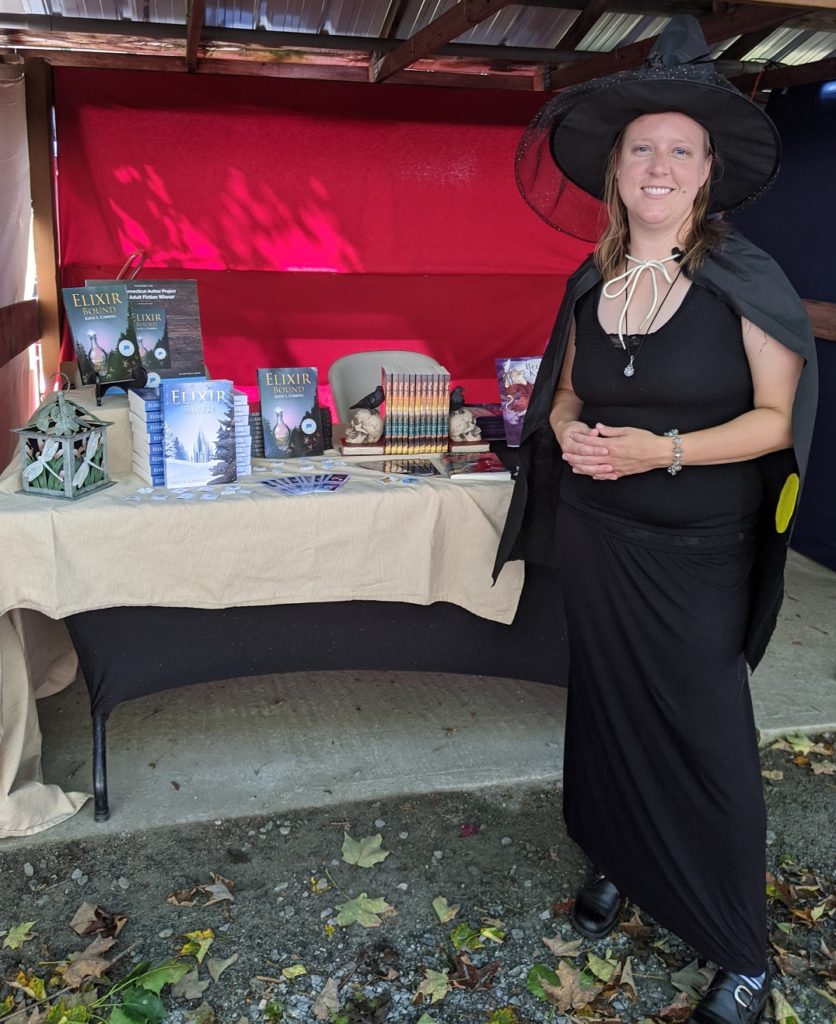Quick reminder that there are just a couple of days left to get 10% my entire catalogue of books using code NOVEMBER10. Just go to the Purchase Books page and I’ll ship them directly to you. All books are signed with an option to personalize, and all purchases come with fun book swag!

For those of you who have been followers of my blog for awhile, you may remember the last time I went to the Highlights Foundation or a writing retreat and wrote “Highlights Foundation Unworkshop: A Little Creepy, A Lot Productive.” My writing friend Katlyn Duncan and I enjoyed it so much, we scheduled one for the following fall.
Then COVID happened and we had to put the trip on hold, but we finally made back early this month! And it was amazing!!! Yes, amazing with three exclamation points.
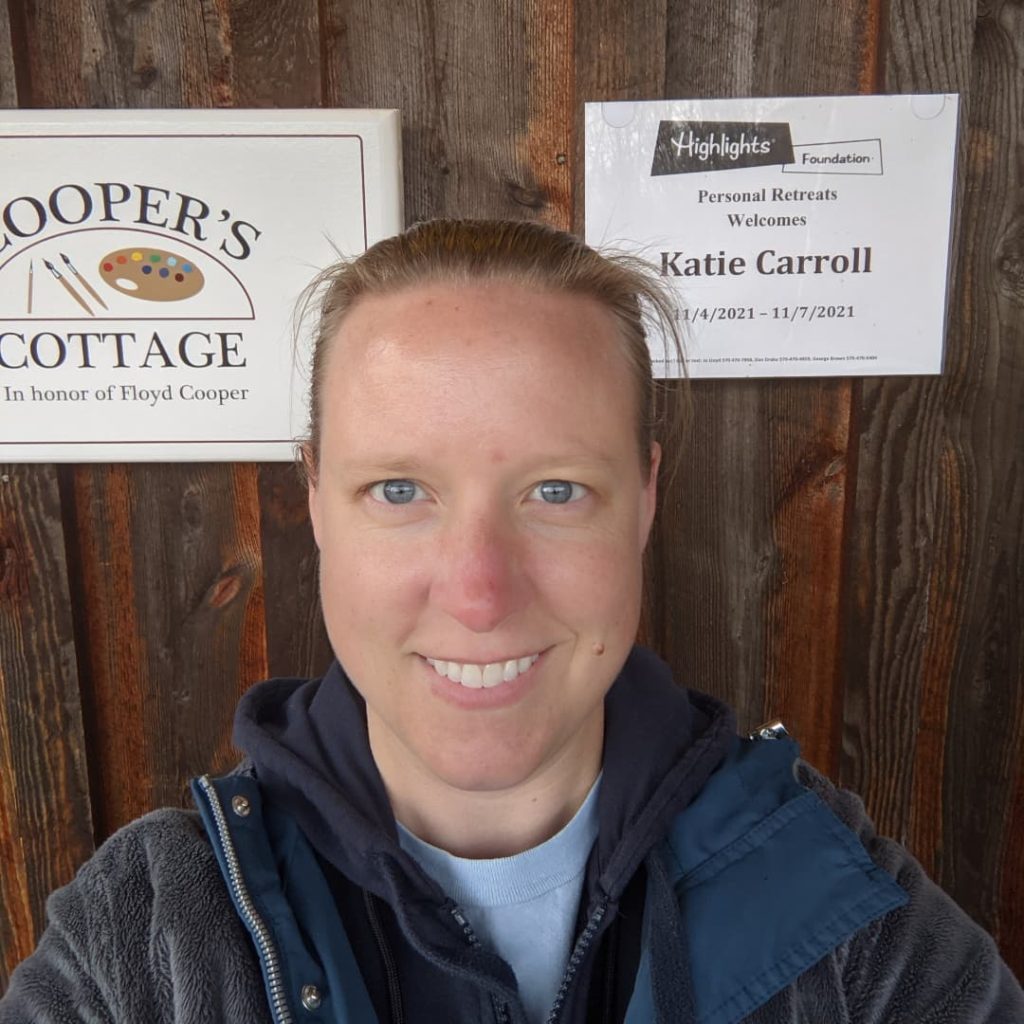
With this retreat scheduled for early November and me just starting a draft of my latest young adult novel, all the stars aligned for me to attempt National Novel Writing Month. NaNoWriMo (for short) occurs in November and a bunch of writers attempt to draft a book (i.e. write 50,000 words) in 30 days. It’s an intense experience, and one I was not in a position to attempt in recent years.
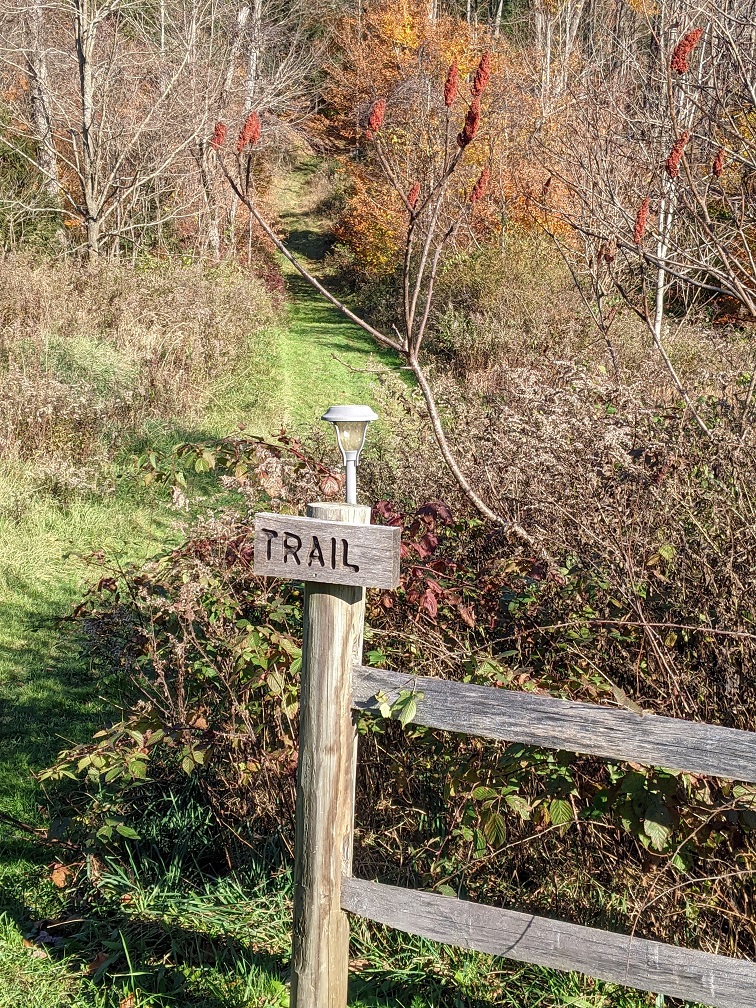
This year, I stayed in Cooper’s Cottage, which was a bright and airy cabin full of Floyd Cooper’s illustrations and with a view of the hiking path. It was not haunted, though one of the other writers I was on the retreat with stayed in my old cabin, and (spoiler alert) that one is still haunted. I actually didn’t write much in my cabin because I was retreating with three other writers this year and we mostly wrote in common spaces or in one of the other cabins (but not the haunted one!).
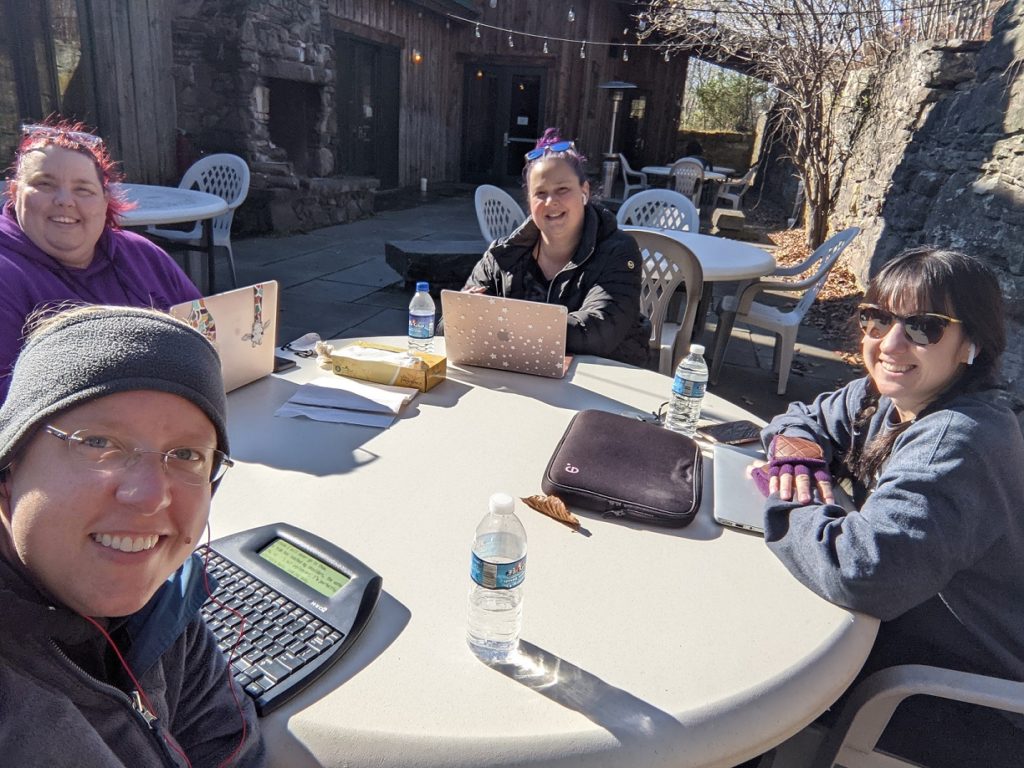
As I said, it was an amazing trip, and I highly recommend a Highlights retreat for all of you creative types. I wrote a ton of words and set myself up for successfully completing my NaNoWriMo challenge (as of November 28 when I’m writing this, I’m at 47, 250 words for the month and on track to finish on time). There’s much to be said of having everything taken care of for you so you have the brain space to only think of writing.
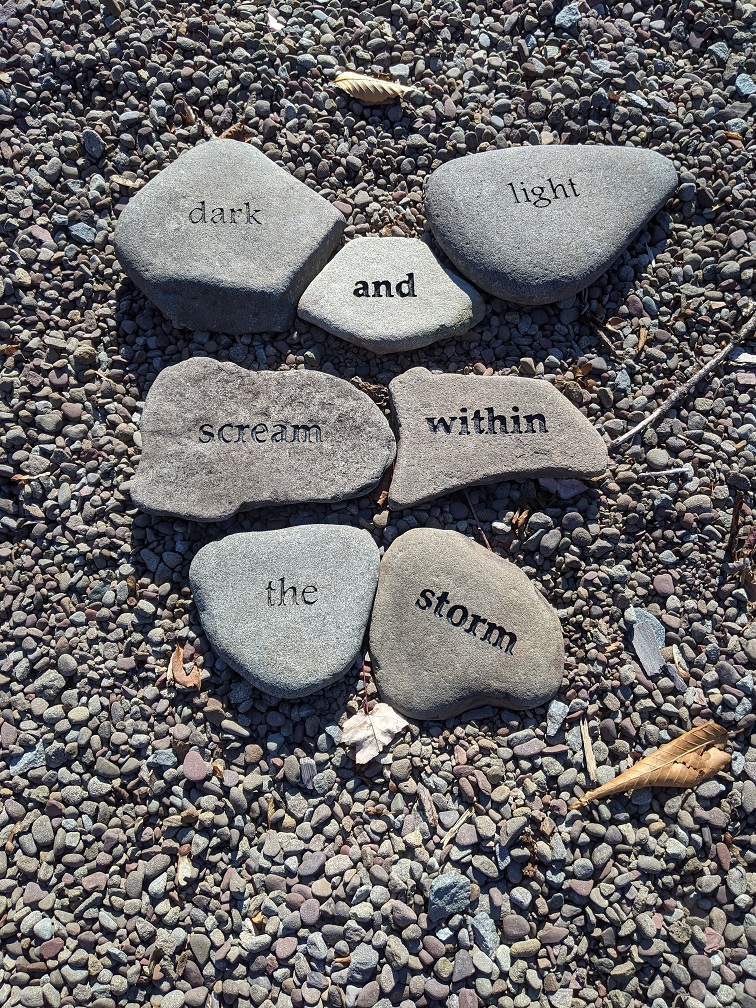
As a teaser for what I’m working on, I composed this poem in the Highlights word garden. As you can see, it’s kind of an intense story, but I’m really pleased with how it’s coming out. Though there will be a ton of revisions to come.
dark and light
scream within
the storm
Katie L. Carroll
My retreat mates are all vloggers, so you can check out their videos about the experience below. I kind of hate making videos myself, so I’ll be sticking to this old blog for now.
